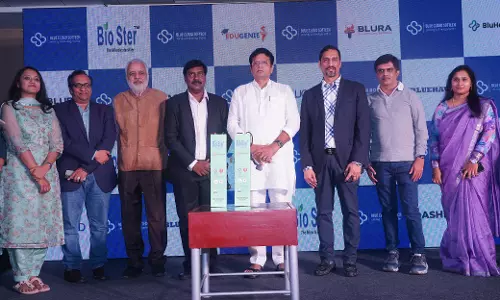Necessity makes this mom invent gloves for epileptic
Necessity was what drove this mother of a five-year-old epileptic boy to invent a sensor-based wearable device that predicts occurrence of epilepsy attack in patients.;
Necessity was what drove this mother of a five-year-old epileptic boy to invent a sensor-based wearable device that predicts occurrence of epilepsy attack in patients. A mother, an innovator and an entrepreneur Rajlakshmi Borthakur developed, T-Jay, a glove that can read brain signals to predict the occurrence of an attack.
Borthakur was one of the exhibits at the IoTNext conference held in Bengaluru on Wednesday.
“When my son was detected with epilepsy I realized the importance of timely detection of an attack and the amount of struggle that could be minimized for a patient by its early prediction,” Borthakur said. “This is what drove me to develop a tool that could detect future occurrence of an attack and help other such patients in distress.”
T-jay senses 11 types of signals from the body, such as temperature, respiration and blood pressure, compares them against preset threshold values and gives indication of occurrence of an epileptic attack.
The IoTNext conference held by the India Electronics and Semiconductor Association (IESA) saw innovations and IoT-based solutions across healthcare, smart homes and agriculture sector.
A sensor-based device “Cloud-pill,” that stores pills and triggers an alert on a caretaker’s phone in an event of a missed dosage was also a part of the exhibition. The device also registers an event when a pill is taken out from the box and populates details of the pill on a cloud storage that can help physicians analyze the dosage patterns and determine line of actions for the patient.
Saving you the trouble of being stranded on the road due to “vehicle trouble” Ridelogic, an automotive startup offered “smart driving” solution by mounting a sensor-based device on a bike that could provide real-time feedback on vehicle performance. The device integrated with phone could give feedback on engine condition and also predict warning of impeding engine trouble.
In case of a road accident, the device also detects collision and sends alert to an emergency contact.
Assisting oncologists, Dr. Assist, a cognitive cancer care studio center offered help in precise diagnosis and personalized treatment for cancer patients, while also suggesting line of treatment for patients by analyzing scanned images of cancer affected areas.
Centralized control of all home appliances through mobile phone and automated water supply detection motors for famers were some other exhibits at the event.



